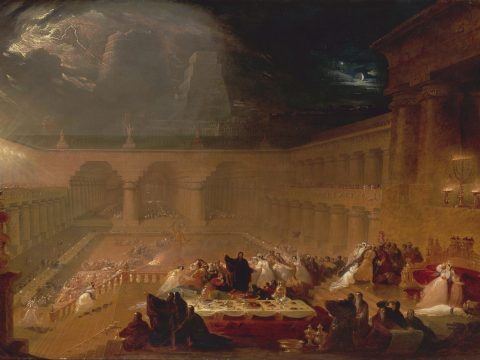
First, the doctrine of reprobation does not mean that God purposed to take innocent creatures, make them wicked, and then damn them. Scripture says, “God hath made man upright: but they have sought out many inventions” (Ecc 7:29). God has not created sinful creatures in order to destroy them, for God is not to be charged with the sin of His creatures. The responsibility and criminality is man’s.
God’s decree of reprobation contemplated Adam’s race as fallen, sinful, corrupt, guilty. From it God purposed to save a few as the monuments of His sovereign grace; the others He determined to destroy as the exemplification of His justice and severity. In determining to destroy these others, God did them no wrong. They had already fallen in Adam, their legal representative; they are therefore born with a sinful nature, and in their sins He leaves them. Nor can they complain. This is as they wish; they have no desire for holiness; they love darkness rather than light. Where, then, is there any injustice if God “gives them up to their own heart’s lusts” (Psa 81:12).
Second, the doctrine of reprobation does not mean that God refuses to save those who earnestly seek salvation. The fact is that the reprobate have no longing for the Saviour: they see in Him no beauty that they should desire Him. They will not come to Christ—why then should God force them to? He turns away none who do come—where then is the injustice of God foredetermining their just doom? None will be punished but for their iniquities; where then is the supposed tyrannical cruelty of the divine procedure? Remember that God is the Creator of the wicked, not of their wickedness; He is the author of their being, but not the infuser of their sin.
God does not (as we have been slanderously reported to affirm) compel the wicked to sin, as the rider spurs on an unwilling horse. God only says, in effect, that awful word, “Let them alone” (Mat 15:14). He needs only to slacken the reins of providential restraint, and withhold the influence of saving grace, and apostate man will only too soon and too surely, of his own accord, fall by his iniquities. Thus the decree of reprobation neither interferes with the bent of man’s own fallen nature, nor serves to render him the less inexcusable.
Third, the decree of reprobation in nowise conflicts with God’s goodness. Though the non-elect are not the objects of His goodness in the same way or to the same extent as the elect are, yet are they not wholly excluded from a participation of it. They enjoy the good things of providence (temporal blessings) in common with God’s own children, and very often to a higher degree. But how do they improve them? Does the (temporal) goodness of God lead them to repent? Nay, verily, they do but despise “His goodness, and forbearance, and longsuffering,” and “after thy hardness and impenitent heart treasurest up unto thyself wrath against the day of wrath” (Rom 2:4-5). On what righteous ground, then, can they murmur against not being the objects of His benevolence in the endless ages yet to come? Moreover, if it did not clash with God’s mercy and kindness to leave the entire body of the fallen angels (2Pe 2:4) under the guilt of their apostasy still less can it clash with the divine perfections to leave some of fallen mankind in their sins and punish them for them.
Finally, let us interpose this necessary caution: It is utterly impossible for any of us, during the present life, to ascertain who are among the reprobate. We must not now so judge any man, no matter how wicked he may be. The vilest sinner, may, for all we know, be included in the election of grace and be one day quickened by the Spirit of grace. Our marching orders are plain, and woe unto us if we disregard them—“Preach the gospel to every creature.” When we have done so our skirts are clear. If men refuse to heed, their blood is on their own heads; nevertheless “we are unto God a sweet savour of Christ, in them that are saved, and in them that perish. To the one we are a savor of death unto death; and to the other we are a savor of life unto life” (2Co 2:15-16).
A.W. Pink. The Sovereignty of God.



